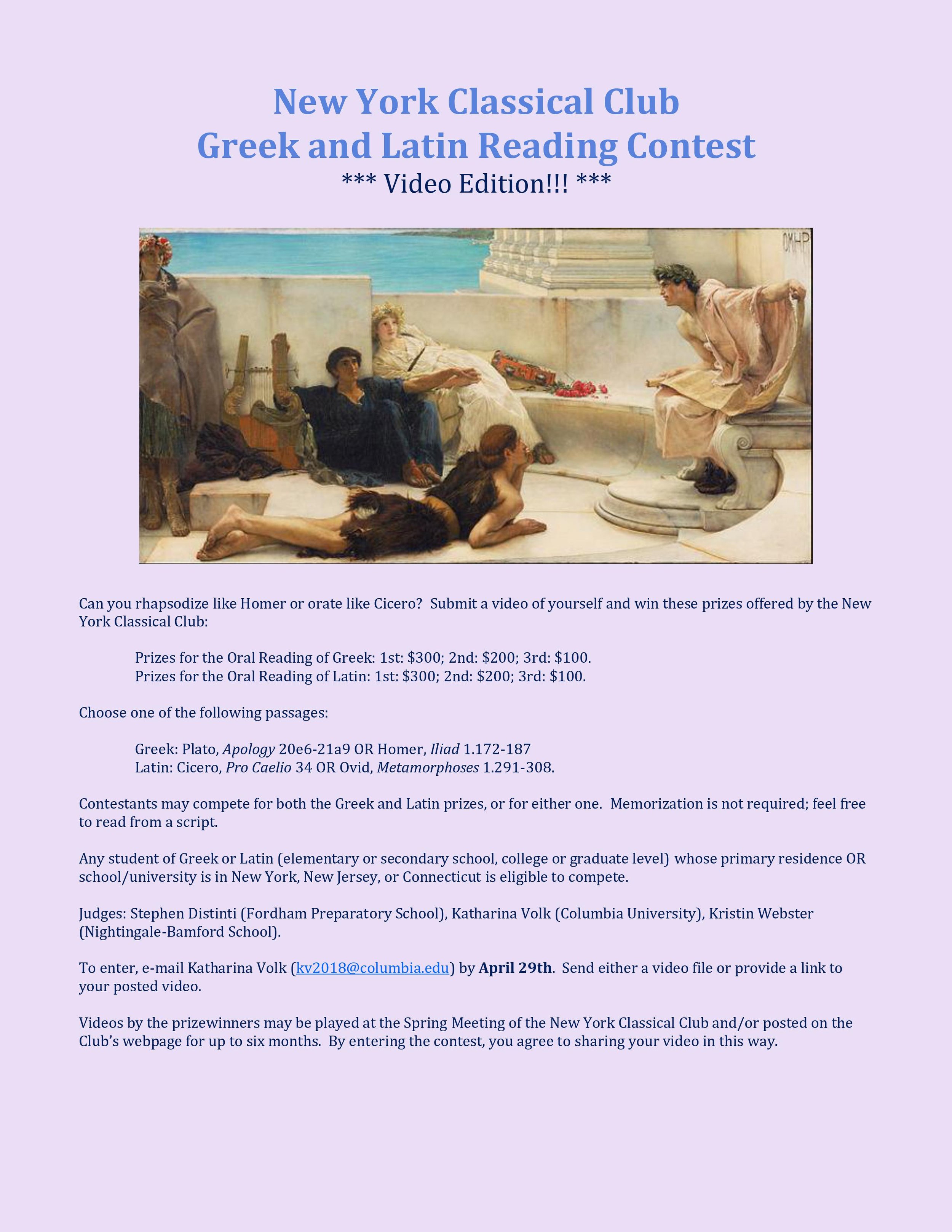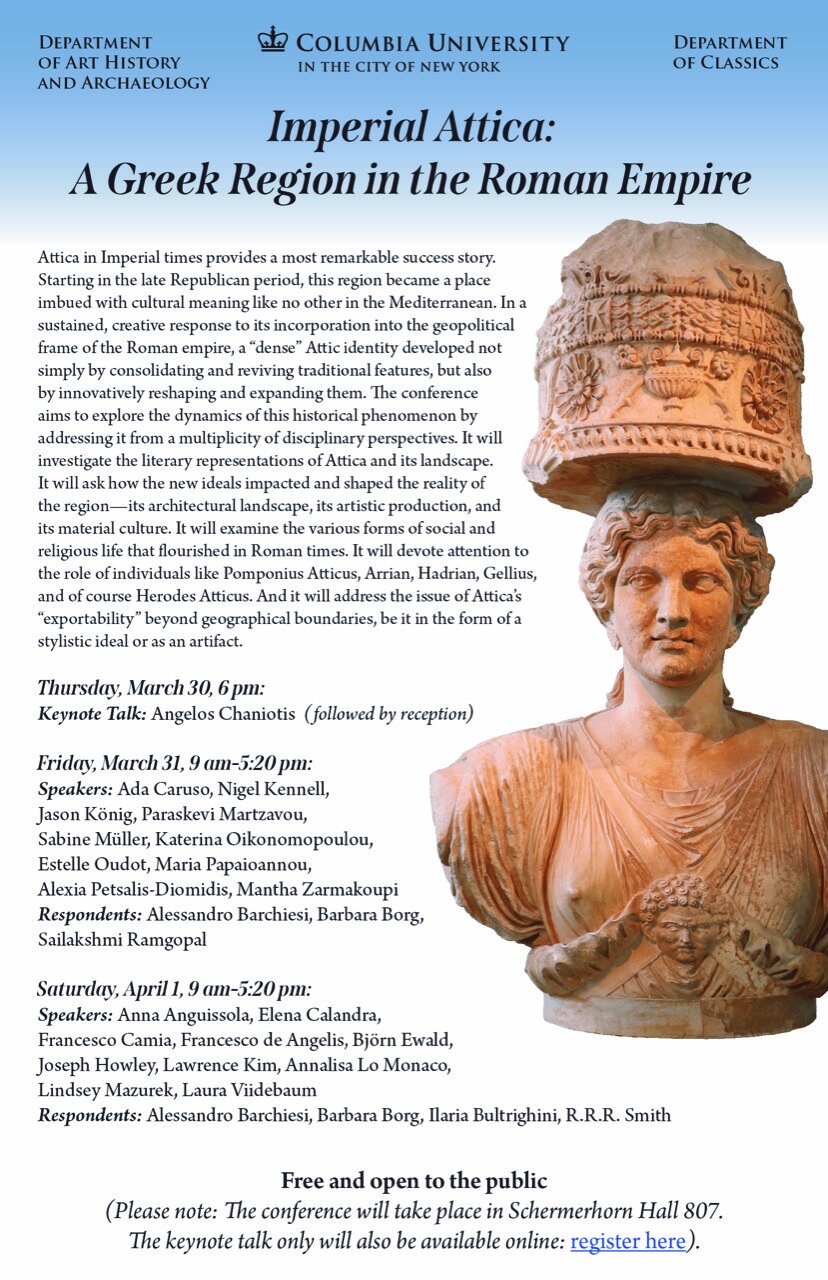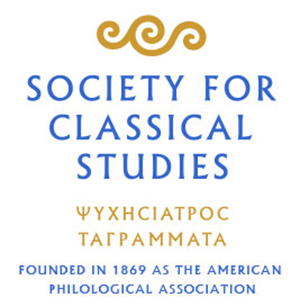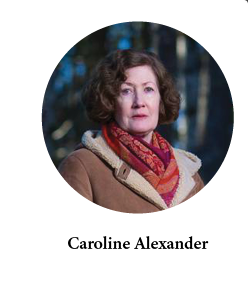New York Classical Club Greek and Latin Reading Contest - *** Video Edition ***
To enter, e-mail Katharina Volk (kv2018@columbia.edu) by April 29th. Send either a video file or provide a link to your posted video.
News and announcements of the Department of Classics, Columbia University
New York Classical Club Greek and Latin Reading Contest - *** Video Edition ***
To enter, e-mail Katharina Volk (kv2018@columbia.edu) by April 29th. Send either a video file or provide a link to your posted video.

Please join us in celebrating Dr. Helene Foley with a Conference in her honor highlighting her amazing legacy and lasting impact.
Organized by Nancy Worman
– in collaboration with students and former students of Helene –
Francisco Barrenechea, Claire Catenaccio, Anna Conser, Elizabeth Heintges, Carina de Klerk, Izzy Levy, Melissa Mueller, Sarah Nooter, Simone Oppen, Cristina Perez, Charles Pletcher, Melinda Powers, and Caleb Simone
– as well as her colleagues –
Gisela Cardenas, Marcus Folch, Erin Mee, Kristina Milnor, Ellen Morris,
Elizabeth Scharffenberger, Debbie Steiner, Oliver Taplin, and Froma Zeitlin
– with assistance from Columbia graduate students –
Emma Ianni, Giovanni Lovisetto, Valeria Spacciante, and Brett Stine

Attica in Imperial times provides a remarkable success story. Starting in the late Republican period, this region became a place imbued with cultural meaning like no other in the Mediterranean. In a sustained, creative response to its incorporation into the geopolitical frame of the Roman empire, a "dense" Attic identity developed not simply by consolidating and reviving traditional features, but also by innovatively reshaping and expanding them. The conference aims to explore the dynamics of this historical phenomenon by addressing it from a multiplicity of disciplinary perspectives. It will investigate the literary representations of Attica and its landscape. It will ask how the new ideals impacted and shaped the reality of the region—its architectural landscape, its artistic production, and its material culture. It will examine the various forms of social and religious life that flourished in Roman times. It will devote attention to the role of individuals like Pomponius Atticus, Arrian, Hadrian, Gellius, and of course Herodes Atticus. And it will address the issue of Attica's "exportability" beyond geographical boundaries, be it in the form of a stylistic ideal or as an artifact.
Thursday, March 30, 6 pm:
Keynote Talk: Angelos Chaniotis (followed by reception)
Friday, March 31, 9 am-5:20 pm
Speakers: Ada Caruso, Nigel Kennell, Jason König, Paraskevi Martzavou, Sabine Müller, Katerina Oikonomopoulou, Estelle Oudot, Maria Papaioannou, Alexia Petsalis-Diomidis, Mantha Zarmakoupi
Respondents: Alessandro Barchiesi, Barbara Borg, Sailakshmi Ramgopal
Saturday, April 1, 9 am-5:20 pm
Speakers: Anna Anguissola, Elena Calandra, Francesco Camia, Francesco de Angelis, Björn Ewald, Joseph Howley, Lawrence Kim, Annalisa Lo Monaco, Lindsey Mazurek, Laura Viidebaum
Respondents: Alessandro Barchiesi, Barbara Borg, Ilaria Bultrighini, R.R.R. Smith
Free and open to the public
(Please note: The conference will take place in Schermerhorn Hall 807.
The keynote talk only will also be available online: register here).

The Program in Hellenic Studies at Columbia University invites you to celebrate the launch of the bilingual collection ΑΛΛΩΝΩΝ/LIFTED. Karen Van Dyck and Eleni Bourou will talk about their collaboration followed by authors and translators reading “their” poems.
Thursday, March 30th, 2023 at 7:00 PM
at Book Culture (536 W 112 St.)
between Broadway and Amsterdam
Rules
1. Take a prose passage that wants to be a poem.
2. Transcribe it.
3. Note the author,
4. the title of the book where you found the passage,
5. and the translator, if originally in another language.
6. Rework it as a poem:
7. break it into lines,
8. create stanzas,
9. change the punctuation,
10. but don’t delete or add words, except a title.
About the author
Karen Van Dyck is a critic, translator, poet and founder of Hellenic Studies at Columbia University. Her recent translations include Jazra Khaleed's The LIght that Burns Us, Maria Laina's Hers, Margarita Liberaki’s Three Summers, and the anthology Austerity Measures: The New Greek Poetry. Her essays, translations, and poems have appeared in the PMLA, the LARB, the Guardian, The Paris Review, Asymptote, and Tender.
About the translator
Eleni Bourou is a translator, poet and editor. Her translations include poetry by Yosano Akiko, Nanni Balestrini, Nicole Brossard, Audre Lorde, and Keston Sutherland. Her poetry can be found in the collective works Virgulentxs (Berlin), A Chama Depende do Combustível vol. 2 (Fortaleza), What the Fire Sees (Brussels), ANAMESA (Athens) and in the literary magazine Lichtungen (Graz). She and Jazra Khaleed edit the Greek poetry magazine Teflon.

The Book Review with Gareth Williams (former Book Review Editor, Classical World) and James Zetzel (Editorial Board, Bryn Mawr Classical Review).
Moderated by Katharina Volk (Latin Editor, Gnomon).
Friday, March 3rd, 4:10pm 603 Hamilton Hall

Dear all,
The Classical Studies Graduate Program warmly invites you to a talk entitled "The Seleucid Paradox: Ethnicity and Cultural Change in Late-Hellenistic Sidon and Tyre" by Tal Ish-Shalom, PhD candidate in Classical Studies at Columbia University. Please join us on Friday, February 17 at 4:10 pm in Room 616 Hamilton Hall, with a reception to follow in Room 618. This talk is being presented in preparation for job interviews.

Greetings!
Columbia University Classics Department is super excited & proud to announce the Book Launch of Dr. Cristina Pérez Díaz's new book Antígona by José Watanabe A Bilingual Edition with Critical Essays.

To celebrate this amazing achievement, we invite you to her book launch event happening on Friday, February 10, 2023, at 4:10p in 603 Hamilton Hall.
This book brings to English readers, in its entirety for the first time, a translation of José Watanabe’s Antígona, accompanied by the original Spanish text and critical essays.
The lack of availability in English has resulted in the absence of Antígona from important Anglophone studies devoted specifically to the reception of ancient Greek tragedy in the Americas. Pérez Díaz's translation fills this gap. The introduction provides the performative, political, and historical contexts in which the text was written in collaboration with the actress Teresa Ralli, from the Peruvian theater group Yuyachkani, who also originally performed it. Following the bilingual text, a critical essay provides an analysis of textual aspects of Antígona that have been disregarded, situating it in relation to Sophocles' Antigone and in conversation with relevant moments of the vast traditions of reception of the Greek tragedy. An appendix briefly surveys some notable productions of the play throughout Latin America.
This comprehensive volume provides an invaluable resource for readers interested in José Watanabe's work, students and scholars working on classical reception and Latin American literature and theatre, as well as theatre practitioners.


Event link: https://sofheyman.org/events/justice-forum-moses-hadas
A panel featuring Rachel Hadas, Roosevelt Montás, and Dan-el Padilla Peralta
In the summer of 1963, Moses Hadas (1900-1966), Jay Professor of Greek at Columbia, used what was then a new AT &T technology to deliver a series of telelectures. Passionate about transmitting the classical legacy to the broadest possible audience, Hadas delivered 18 lectures to students at Historical Black Colleges and Universities in Mississippi and Louisiana. Materials pertaining to these historic lectures will be presented by Rachel Hadas -- poet, translator, educator, essayist, and the youngest daughter of Moses Hadas. Using these materials as a starting point, Rachel Hadas, Roosevelt Montás, and Dan-el Padilla Peralta (SOF 2014-16) will discuss the context of these lectures and the cultural shifts that have had an impact upon pedagogy and technology, the classical tradition, and equity in education-- all issues which, sixty years later, remain not only relevant but urgent.
This event is free and open to the public but requires prior registration (access through the website).
This book brings to English readers, in its entirety for the first time, a translation of José Watanabe’s Antígona, accompanied by the original Spanish text and critical essays.
The lack of availability in English has resulted in the absence of Antígona from important Anglophone studies devoted specifically to the reception of ancient Greek tragedy in the Americas. Pérez Díaz's translation fills this gap. The introduction provides the performative, political, and historical contexts in which the text was written in collaboration with the actress Teresa Ralli, from the Peruvian theater group Yuyachkani, who also originally performed it. Following the bilingual text, a critical essay provides an analysis of textual aspects of Antígona that have been disregarded, situating it in relation to Sophocles' Antigone and in conversation with relevant moments of the vast traditions of reception of the Greek tragedy. An appendix briefly surveys some notable productions of the play throughout Latin America.
This comprehensive volume provides an invaluable resource for readers interested in José Watanabe's work, students and scholars working on classical reception and Latin American literature and theatre, as well as theatre practitioners.
The Classics Department is delighted to announce the publication of The Spear, The Scroll, and The Pebble by Professor Richard A. Billows. This book presents a powerful new argument for how and why the Greek city-states, including their distinctive society and culture, came to be - and why they had the highly unusual and influential form they took. After reviewing early city-state formation, and the economic underpinnings of city-state society, three key chapters examine the way the Greeks developed their unique society. The spear, scroll, and pebble encapsulate the book's core ideas.
The Spear: city-state Greeks developed a citizen-militia military system that gave relatively equal importance to each citizen-warrior, thereby emboldening the citizen-warriors to demand political rights.
The Pebble: the resultant growth of collective political systems of oligarchy and democracy led to thousands of citizens forming the sovereign element of the state; they made political decisions through communal debate and voting.
The Scroll: in order for such systems to function, a shared information base had to be created, and this was done by setting up public notices of laws, proposed policies, public meeting agendas, and a host of other information.
To access this information, these military and political citizens had to be able to read. Billows examines the spread of schools and literacy throughout the Greek world, showing that the male city-state Greeks formed the world's first-known mass literate society. He concludes by showing that it was the mass-literate nature of the Greek city-state society that explains the remarkable and influential culture the classical Greeks produced.

Dear Members of the Classics Community,
We will be holding a holiday celebration from 11am-4pm on Thursday December 15th 618 Hamilton Hall.
Please stop by anytime between 11 and 4 to help yourself to some sweet treats and drinks to celebrate the end of the semester and the beginning of the holiday season.
In an effort to keep our community healthy this will be a 'grab and go' event rather than a formal gathering.
We hope to see you on the 15th!
Two of our PhD Students, Izzy Levy and Charles Pletcher, are writing as co-directors of 2023’s Barnard Columbia Ancient Drama Group play, ‘Aristophanes’ Women-at-the-Thesmophoria’s Euripides’ Helen.’
The show is a tragicomic mashup of Aristophanes’ Thesmophoriazusae (Women at the Thesmophoria) and Euripides’ Helen. It will be performed entirely in Ancient Greek, with a contemporary drag cabaret twist.
Genderbending and genrebending are going to be at the heart of the performance. No previous performance experience or knowledge of Ancient Greek is required to participate, although both are very welcome!
On Tuesday, December 13, we will be holding auditions for the show in Hamilton 618, from 5-8pm. Sides will be provided at the audition with English translations of scenes from both Helen and Thesmophoriazusae — no need to prepare anything in Greek. If you are interested in a singing role (Chorus members, as well as ~3 main characters), please prepare to sing a brief (roughly 16-bar) selection of your choice (unaccompanied)
If you’d like to get involved behind the scenes, please fill out this Google Form with your interests and information and Izzy and/or Charles will be in touch.
Columbia University’s interdisciplinary and interdepartmental Classical Studies Graduate Program is delighted to announce the first Classical Dialogues talk of the 2022-2023 academic year.
Professor Maggie Popkin (Art History, Case Western Reserve University) will be on campus to discuss her recent book Souvenirs and the Experience of Empire in Ancient Rome (Cambridge UP, 2022) on Friday October 28, 11:00-1:00 in 603 Hamilton Hall.
This in-person only event has an author-meets-readers format. Thus, we are circulating in advance two of Prof. Popkin’s chapters: “Introduction: Souvenirs of the Roman Empire” and “Souvenirs of Cult Statues” Please email Lauren Palmer for a copy of the chapters
After an introduction by Prof. Francesco de Angelis (CU Department of Art History & Archaeology), Prof. Popkin will discuss her book, engage in dialogue with two graduate student respondents (Giulia Bertoni and Giovanni Lovisetto), and answer questions from attendees.
We look forward to seeing you there and to welcoming you to a short reception following the event.
About Souvenirs and the Experience of Empire in Ancient Rome
In this book, Maggie Popkin offers an in-depth investigation of souvenirs, a type of ancient Roman object that has been understudied and that is unfamiliar to many people. Souvenirs commemorated places, people, and spectacles in the Roman Empire. Straddling the spheres of religion, spectacle, leisure, and politics, they serve as a unique resource for exploring the experiences, interests, imaginations, and aspirations of a broad range of people - beyond elite, metropolitan men - who lived in the Roman world. Popkin shows how souvenirs generated and shaped memory and knowledge, as well as constructed imagined cultural affinities across the empire's heterogeneous population. At the same time, souvenirs strengthened local identities, yet excluded certain groups from the social participation that souvenirs made available to so many others. Featuring a full illustration program of 137 color and black and white images, Popkin's book demonstrates the critical role that souvenirs played in shaping how Romans perceived and conceptualized their world, and their relationships to the empire that shaped it.
– Cambridge University Press webpage https://www.cambridge.org/us/academic/subjects/archaeology/classical-archaeology/souvenirs-and-experience-empire-ancient-rome?format=AR&isbn=9781009051347
About Maggie Popkin:
Maggie L. Popkin is Robson Junior Professor and Associate Professor of Art History in the Department of Art History and Art at Case Western Reserve University. She is the author of The Architecture of the Roman Triumph: Monuments, Memory, and Identity (Cambridge University Press, 2016) and numerous articles on Greek and Roman art and architecture. She has received fellowships from the Fulbright Organization and the National Endowment for the Humanities and is a Fellow of the American Academy in Rome.
The Columbia Division of Humanities, Arts, & Sciences has graciously mentioned three of our outstanding professors in their news updates.
They congratulated Professor Howley on receiving the 2022 Faculty Mentoring Award as well as Professors Volk and Steiner on receiving the 2022 Goodwin Awards.
Read more about their achievements here.
The Department of Classics is thrilled to congratulate Debbie Steiner and Katharina Volk for winning the Goodwin Award for this year. As we all know, the Goodwin Award, given out by the SCS, acknowledges "outstanding contributions to classical scholarship by members of the society". This wonderful news emphasizes our strength in Greek culture (with a strong interdisciplinary interest in visual material) and in Latin literature and Roman culture (with a strong interest in philosophy and intellectual history). In addition, we are delighted to salute the third recipient of the award, James Uden (PhD Columbia 2011), and to say how we proud we are in his achievement.

For the official announcement of the award by the SCS please see
Lifted is a collection of poetry that explores the ethics of making poems out of other people’s prose and translations as it tells the story of a girl becoming a writer and translator (Agra, September 2022, bilingual edition, translated into Greek by Eleni Bourou, 112 pages). Copies available at Book Culture.
About The Author
Karen Van Dyck is a critic, translator and poet. When she is not teaching at Columbia in New York City, she spends as much time as possible in Greece. Her recent translations include Margarita Liberaki’s novel Three Summers, the anthology Austerity Measures: The New Greek Poetry, and a collection of Katerina Anghelaki-Rooke’s poetry The Scattered Papers of Penelope. Her essays, translations, and poems have appeared in the Guardian, The Paris Review, Asymptote, and Tender.
About the Translator
Eleni Bourou is a translator, poet and editor. She has published translations of the poets Yosano Akiko, Nanni Balestrini, Nicole Brossard, Audre Lorde, and Keston Sutherland among others. From 2008 she has coedited the Greek poetry magazine Teflon. Recent publications of her own poetry can be found (under different monikers) in the collective works Virgulentxs (Berlin), A Chama Depende do Combustível vol. 2 (Fortaleza), What the Fire Sees (Brussels), ANAMESA (Athens) and in the literary magazine Lichtungen (Graz).
The Department of Classics will be holding Ancient Greek & Latin Placement Exams on August 31st from 1p-3p in 618 Hamilton Hall.
This is a sight exam; no dictionaries or grammatical aids may be used
If students have questions, please reach out to Professor Marcus Folch mf2664@columbia.edu
The Department extends its warmest congratulations to recent Ph.D. Cat Lambert, the 2022 Winkler Memorial Prize graduate winner for her essay "Lucian’s Queer Book User in the Adversus Indoctum." This prize, founded in honor of legendary Classicist Jack Winkler, encourages innovative work in marginal areas of the Classics. In Cat's own words, "Some of my fondest memories while at Columbia include engaging undergraduate students with Jack's work in various contexts, such as courses on Daphnis and Chloe, classical myth, and "Queer Classics". My essay, "Lucian's Queer Book User in the Adversus Indoctum," represents the fusion of two core interests and methods that I have long kept siloed: book history and queer studies." In her prize-winning essay, Cat draws on her expertise in both fields to craft a bibliographically queer reading of Lucian's satire, and the ways in which Lucian twists and subverts his time's dominant, hegemonic perspectives.
You can read the full announcement of this year's Winkler prize here.

The Department of Classics is proud to announce that Classics alumna Caroline Alexander (PhD ‘91) will be honored at the forthcoming Graduate School of Arts and Sciences Awards Dinner as the 2020 recipient of the Dean's Award for Distinguished Achievement - PhD.
More information about alumni award winners can be found here.
The Department extends its warmest congratulations to Dr. Alexander on this momentous honor.
